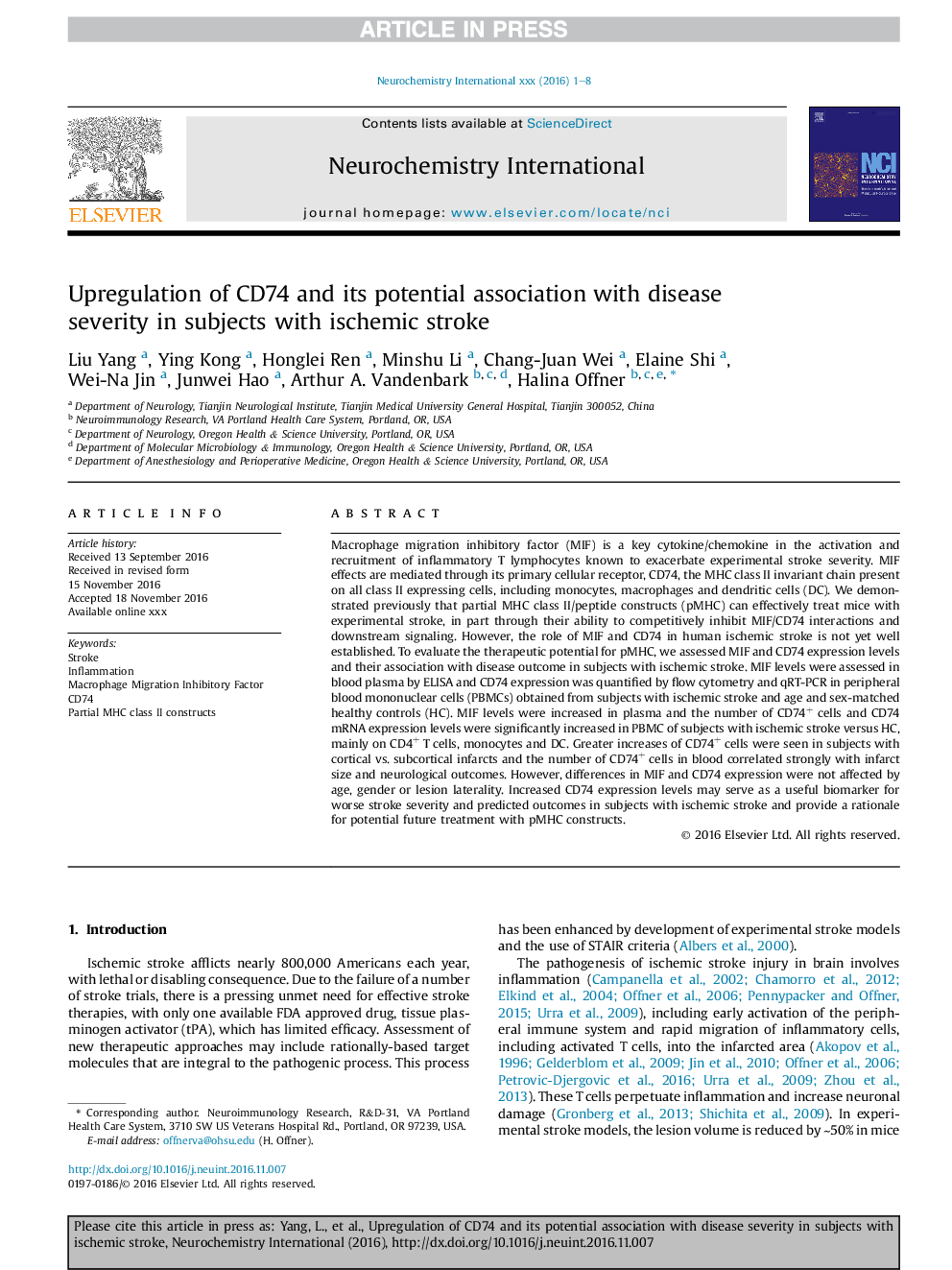| Article ID | Journal | Published Year | Pages | File Type |
|---|---|---|---|---|
| 5534595 | Neurochemistry International | 2017 | 8 Pages |
Abstract
Macrophage migration inhibitory factor (MIF) is a key cytokine/chemokine in the activation and recruitment of inflammatory T lymphocytes known to exacerbate experimental stroke severity. MIF effects are mediated through its primary cellular receptor, CD74, the MHC class II invariant chain present on all class II expressing cells, including monocytes, macrophages and dendritic cells (DC). We demonstrated previously that partial MHC class II/peptide constructs (pMHC) can effectively treat mice with experimental stroke, in part through their ability to competitively inhibit MIF/CD74 interactions and downstream signaling. However, the role of MIF and CD74 in human ischemic stroke is not yet well established. To evaluate the therapeutic potential for pMHC, we assessed MIF and CD74 expression levels and their association with disease outcome in subjects with ischemic stroke. MIF levels were assessed in blood plasma by ELISA and CD74 expression was quantified by flow cytometry and qRT-PCR in peripheral blood mononuclear cells (PBMCs) obtained from subjects with ischemic stroke and age and sex-matched healthy controls (HC). MIF levels were increased in plasma and the number of CD74+ cells and CD74 mRNA expression levels were significantly increased in PBMC of subjects with ischemic stroke versus HC, mainly on CD4+ T cells, monocytes and DC. Greater increases of CD74+ cells were seen in subjects with cortical vs. subcortical infarcts and the number of CD74+ cells in blood correlated strongly with infarct size and neurological outcomes. However, differences in MIF and CD74 expression were not affected by age, gender or lesion laterality. Increased CD74 expression levels may serve as a useful biomarker for worse stroke severity and predicted outcomes in subjects with ischemic stroke and provide a rationale for potential future treatment with pMHC constructs.
Related Topics
Life Sciences
Biochemistry, Genetics and Molecular Biology
Cell Biology
Authors
Liu Yang, Ying Kong, Honglei Ren, Minshu Li, Chang-Juan Wei, Elaine Shi, Wei-Na Jin, Junwei Hao, Arthur A. Vandenbark, Halina Offner,
